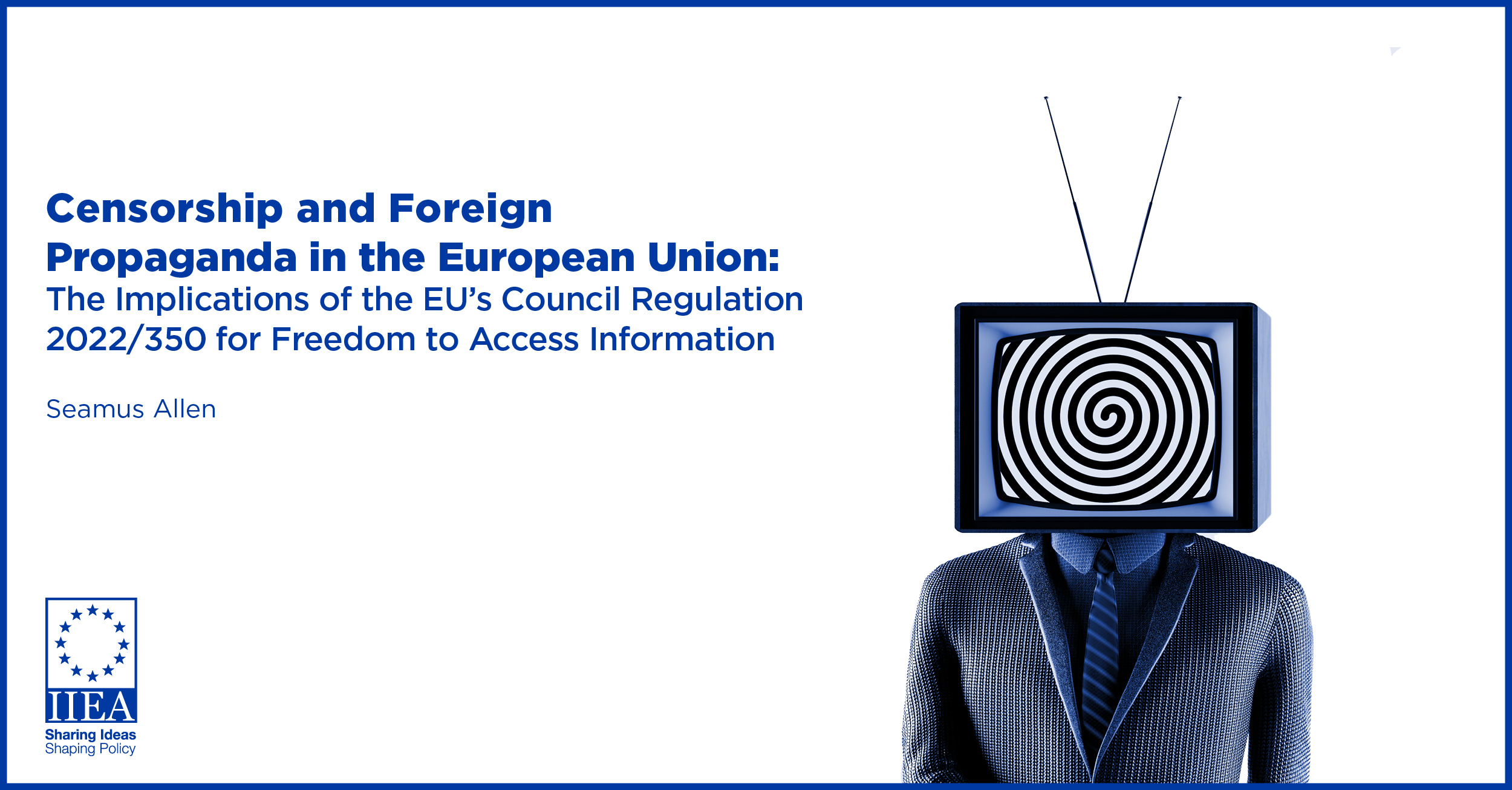Censorship and Foreign Propaganda in the European Union

In March 2022 the European Union for the first time introduced a policy of censorship against foreign propaganda. This policy was adopted to counter Russian propaganda, and it followed Russia’s full-scale invasion of Ukraine in February 2022. Censorship powers can be introduced by well-intentioned actors for justifiable motives and are in some cases arguably justified during crises. However, without robust legal and institutional constraints, even potentially justifiable censorship powers can be subject to later misuse and can be used to suppress dissent and media freedom. This paper seeks to analyse the censorship policy and powers which underpin the European Union’s Council Regulation 2022/350 and the degree to which these may enable European governments to control what information European citizens can and cannot access. This paper ultimately argues that Council Regulation (EU) 2022/350 is underpinned by an unprecedented power of censorship which risks infringing the right of European citizens to access information, and which is potentially detrimental to democratic safeguards.
